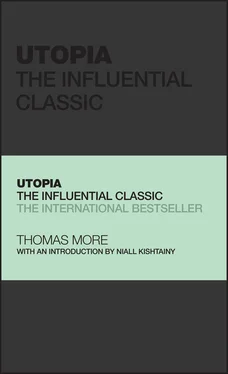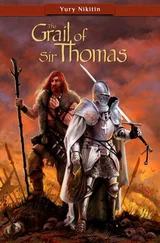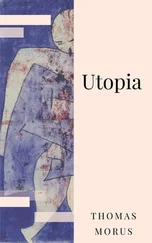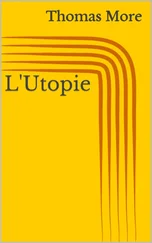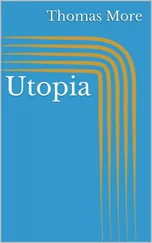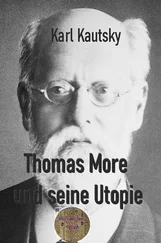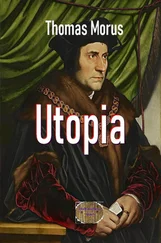A UTOPIAN IN TUDOR ENGLAND
It was an auspicious time for a man of More's interests and background to enter royal service. The question of Henry's divorce that would later lead to Wolsey's fall and to More's execution had yet to dominate English politics. The civil wars known as the Wars of the Roses had ended in the late fifteenth century when More was still a boy. The Tudors had come to power, putting the English nation state on a more stable footing.
With European explorers discovering and plundering new lands, international trade routes were opening up and England was becoming an important trading power and London a major commercial hub. When Henry VIII took the throne in 1509, More wrote verses hailing the dawn of a new era of prosperity and justice. Henry was himself a scholar, and a new breed of learned courtiers began to emerge, like More drawn from middling social ranks and trained in the law.
More and many of his friends at court were connected to the Christian humanist scholarship that had originated in Renaissance Italy and spread to Northern Europe during the fifteenth century. Its exponents returned to original Greek and Latin texts, revived classical rhetoric that would give new ideas practical as well as intellectual potency, and rejected the abstract logical methods of medieval scholastic philosophy. More and other humanist scholars believed that the renovation of literary scholarship would promote human virtue, a purer form of Christianity, and a better society. Erasmus and More were leading lights of this movement and forged a famous friendship and intellectual partnership. Helped through publication by Giles and Erasmus, Utopia was one of the most famous literary creations of this new cultural setting.
Thomas Wolsey epitomized the opulence and worldly ambition of the court that More deplored, but he was a champion of the new learning and was promoting policies that would find parallels in Utopia . Wolsey attempted to reform the inefficient and sclerotic English legal system, which had long disadvantaged the poor. In 1517, he established a commission on the enclosure of common land, then illegal, and attempted to prosecute those undertaking such practices.
When More became Lord Chancellor in 1529, he continued Wolsey's legal efforts to make the law swifter and more accessible to the poor. More may even have considered dedicating Utopia to Wolsey, and it has been conjectured that the book inspired Wolsey to set up his enclosure inquiry. It is hard to draw precise connections between Wolsey's and More's actual policies and the new forms of society set out in Utopia . However, the echoes of one in the other are another reason for believing that More might have been less conflicted about entering royal service than many of his biographers have assumed.
Another echo of Utopia in More's life is found in the reputation of his family as having been especially learned and virtuous. More had four children by his first wife, Jane Colt, who died in her early twenties; his second wife, the well‐off Alice Middleton, acted as stepmother and stayed with him until his death. The family followed a routine of prayer and study and all were encouraged in cultural pursuits. More's children were carefully educated in the classics and religion and his favourite, Margaret, became one of the most learned women in England. At mealtimes, a religious text would be read out and discussed. Erasmus called the household a Platonic Academy devoted to study and spiritual cultivation. Visiting scholars would come to stay, courtiers pass through, and sometimes even the king would drop in for dinner. More's admirers have thought of his home as a little humanist Utopia, a place of scholarship, Christian virtue, and public duty.
MORE'S INTENTION IN UTOPIA
The subtitle of More's opus – A Truly Golden Little Book, No Less Beneficial than Entertaining – raises the central critical problem of Utopia that its readers have been arguing about ever since: what did More intend? Is the book meant as a piece of literary entertainment or as social instruction? If we are meant to take its social arguments seriously, then which of the opposing characters' views are we meant to believe? Is the real More instructing us about how to take our own societies closer to perfection, or is he saying that this is a futile endeavour? Who speaks for the real More: the fictional More and Giles, the sceptics, or Raphael, the arch‐radical?
This sense of ambiguity runs through the text, which is full of word play and paradox, starting with the word utopia itself. It is a Greek‐derived neologism of More's that could mean ‘good place’ ( eu‐topia ) or ‘no place’ ( ou‐topia ). The river that flows through Amaurot is called Anyder or ‘waterless’ and the governor of Utopia is named Ademus, ‘without a people’. Even the shape and dimensions of the island described by Raphael turn out to be mathematically impossible. Raphael Hythloday bears as his first name that of the archangel who came to heal, yet the second part of his name means ‘peddler of nonsense’. Finally, More was fond of punning the Latin version of his name, Morus , the Greek for ‘fool’. It raises the question: if Raphael peddles nonsense, then why does the fictional More oppose him with the objections of a halfwit?
This slipperiness is reinforced by the story's basis in real events and people as well as the inclusion in the text of a map, alphabet, and prefatory letters. In one of these letters, More apologizes to Giles for taking so long to finish the book. He admits that he was at first worried about the challenge of arranging the material and expressing it elegantly, but then realized that all he really had to do was to ‘write plainly the matter as I heard it spoken’. He tells Giles that now he has got to the end of the writing he finds that a few details have slipped his mind, such as the width of the bridge spanning the Anyder. Was it five hundred or three hundred yards long? Would Giles mind getting in touch with Raphael and asking him to settle the matter – and while he is at it, clear up a crucial point which More is embarrassed not to have clarified at the time, that is, where in the New World is Utopia actually located? In another letter, Giles says that during their conversations, Raphael did mention the location of the island but, as he did so, someone nearby coughed loudly, drowning out the crucial words. Giles promises to find Raphael and ask him, though there are rumours that he died on his way home or that he returned to Utopia.
This sense of literary play remains even in that part of the text in which Raphael drily catalogues the customs of the Utopians, even without interjections from More and Giles. Some of these seem designed to puzzle and confound. There are slaves in Utopia (people are not born slaves but are made into them as punishment) and the death penalty is used for certain offences. Utopia is a society of strict control and surveillance: the Utopians can only travel with official permission and discussions about public policy outside the senate are punishable by death. The Utopians foment plots in enemy nations and hire assassins to kill enemy leaders.
Here it must be remembered that More wrote before the advent of modern liberalism and individualism, and so to us some of the Utopians' practices look highly objectionable. But they would have looked much less so to a person of the early sixteenth century. What are we to make, though, of the Utopian practice of displaying potential marriage partners naked so that they can inspect each other before deciding to marry – just as one examines a horse before buying it? One modern critic quipped: ‘So this is Utopia is it? I beg your pardon; I thought it was hell.’
Читать дальше
